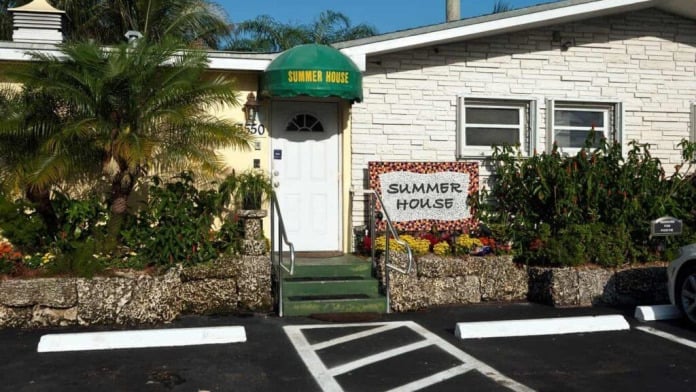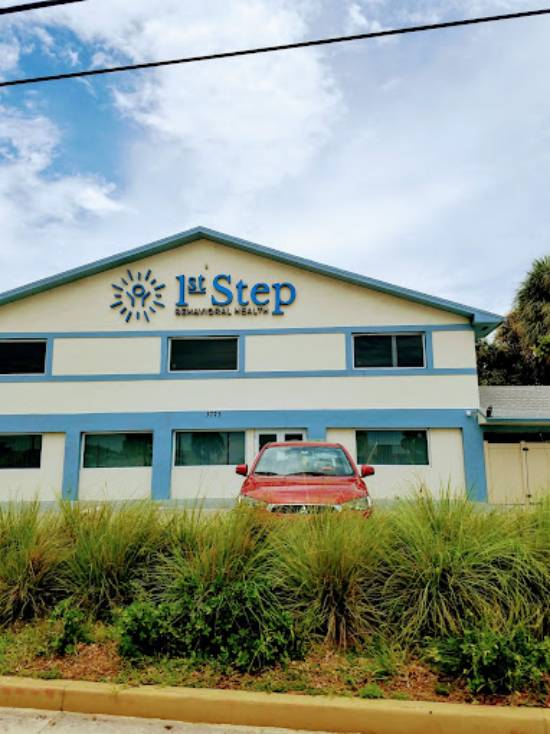About Citrus Health Network – Center for Adolescent Treatment
Citrus Health Network provides substance use treatment for adolescents. It’s based in Hollywood, Florida. They also treat mental health conditions that frequently accompany addiction. The center specializes in care for youth aged 13 to 17 years old. They also have parenting programs for adults with children as young as two.
Personalized Treatment Planning
Citrus Health Network designs care plans that reflect the needs of each person, rather than using a cookie-cutter approach. Their team understands that every guest has a unique recovery journey and wants to ensure care planning is specific.
Guests attend counseling sessions to help uncover the potential root causes of addiction. They examine thought processes and actions that may not be conducive to a life of sobriety. Group sessions provide time with others who understand the unique challenges that come with substance use and allow feedback from the perspective of peers with similar backgrounds.
Education Support
The center emphasizes academic and educational support during treatment. The staff works with clients to help ensure they stay engaged and maintain their studies. The center includes Kreyol- and Spanish-speaking staff members to provide more culturally diverse accommodations.
The staff integrates mental health with substance use counseling with a team of experts working together on your behalf. The center includes therapists, nurses, psychiatrists, and educators. They also realize the importance of community and encourage family involvement throughout the program.
The center is located in the Pembroke Pines/Hollywood area, where guests can enjoy various parks with green spaces, walking trails, and water activities, which may promote healing.
Citrus Health Network works with numerous health insurance plans, including Medicaid. They may provide assistance for those without insurance coverage, depending on funding and eligibility criteria.
Latest Reviews
Rehab Score
Other Forms of Payment
Medicaid is a state based program that helps lower-income individuals and families pay for healthcare. Medicaid covers addiction treatment so those enrolled can use their coverage to pay for rehab. When a program accepts Medicaid the client often pays very little or nothing out of their own pocket.
Addiction Treatments
Levels of Care
Residential treatment programs are those that offer housing and meals in addition to substance abuse treatment. Rehab facilities that offer residential treatment allow patients to focus solely on recovery, in an environment totally separate from their lives. Some rehab centers specialize in short-term residential treatment (a few days to a week or two), while others solely provide treatment on a long-term basis (several weeks to months). Some offer both, and tailor treatment to the patient's individual requirements.
Treatments
Many of those suffering from addiction also suffer from mental or emotional illnesses like schizophrenia, bipolar disorder, depression, or anxiety disorders. Rehab and other substance abuse facilities treating those with a dual diagnosis or co-occurring disorder administer psychiatric treatment to address the person's mental health issue in addition to drug and alcohol rehabilitation.
Mental health rehabs focus on helping individuals recover from mental illnesses like bipolar disorder, clinical depression, anxiety disorders, schizophrenia, and more. Mental health professionals at these facilities are trained to understand and treat mental health issues, both in individual and group settings.
Clinical Services
Cognitive Behavioral Therapy (CBT) is a therapy modality that focuses on the relationship between one's thoughts, feelings, and behaviors. It is used to establish and allow for healthy responses to thoughts and feelings (instead of unhealthy responses, like using drugs or alcohol). CBT has been proven effective for recovering addicts of all kinds, and is used to strengthen a patient's own self-awareness and ability to self-regulate. CBT allows individuals to monitor their own emotional state, become more adept at communicating with others, and manage stress without needing to engage in substance abuse.
Whether a marriage or other committed relationship, an intimate partnership is one of the most important aspects of a person's life. Drug and alcohol addiction affects both members of a couple in deep and meaningful ways, as does rehab and recovery. Couples therapy and other couples-focused treatment programs are significant parts of exploring triggers of addiction, as well as learning how to build healthy patterns to support ongoing sobriety.
Dialectical Behavior Therapy (DBT) is a modified form of Cognitive Behavioral Therapy (CBT), a treatment designed to help people understand and ultimately affect the relationship between their thoughts, feelings, and behaviors. DBT is often used for individuals who struggle with self-harm behaviors, such as self-mutilation (cutting) and suicidal thoughts, urges, or attempts. It has been proven clinically effective for those who struggle with out-of-control emotions and mental health illnesses like Borderline Personality Disorder.
Experiential therapy is a form of therapy in which clients are encouraged to surface and work through subconscious issues by engaging in real-time experiences. Experiential therapy departs from traditional talk therapy by involving the body, and having clients engage in activities, movements, and physical and emotional expression. This can involve role-play or using props (which can include other people). Experiential therapy can help people process trauma, memories, and emotion quickly, deeply, and in a lasting fashion, leading to substantial and impactful healing.
Research clearly demonstrates that recovery is far more successful and sustainable when loved ones like family members participate in rehab and substance abuse treatment. Genetic factors may be at play when it comes to drug and alcohol addiction, as well as mental health issues. Family dynamics often play a critical role in addiction triggers, and if properly educated, family members can be a strong source of support when it comes to rehabilitation.
Group therapy is any therapeutic work that happens in a group (not one-on-one). There are a number of different group therapy modalities, including support groups, experiential therapy, psycho-education, and more. Group therapy involves treatment as well as processing interaction between group members.
In individual therapy, a patient meets one-on-one with a trained psychologist or counselor. Therapy is a pivotal part of effective substance abuse treatment, as it often covers root causes of addiction, including challenges faced by the patient in their social, family, and work/school life.
Nutrition therapy, aka medical nutrition therapy (MNT), is a way of treating physical, emotional, and medical conditions through diet. Specific dietary plans are designed by professional nutritionists or registered dietitians, and patients follow them in order to positively affect their physical and mental health.
Trauma therapy addresses traumatic incidents from a client's past that are likely affecting their present-day experience. Trauma is often one of the primary triggers and potential causes of addiction, and can stem from child sexual abuse, domestic violence, having a parent with a mental illness, losing one or both parents at a young age, teenage or adult sexual assault, or any number of other factors. The purpose of trauma therapy is to allow a patient to process trauma and move through and past it, with the help of trained and compassionate mental health professionals.
Staff

Mario Jardon
President & Chief Executive Officer

Maria Alonso, MBA
Chief Operating Officer

Renan Llanes, MBA
Chief Information Officer

Jose H. Pagliery, MD
Chief Medical Officer

Melina M. Visser, PsyD
Chief Quality Officer

Jose Garcia, MBA, CHCQM
Chief Financial Officer
Contact Information
8400 S Palm Drive
Bldgs 8450 & 8375
Pembroke Pines, FL 33025





